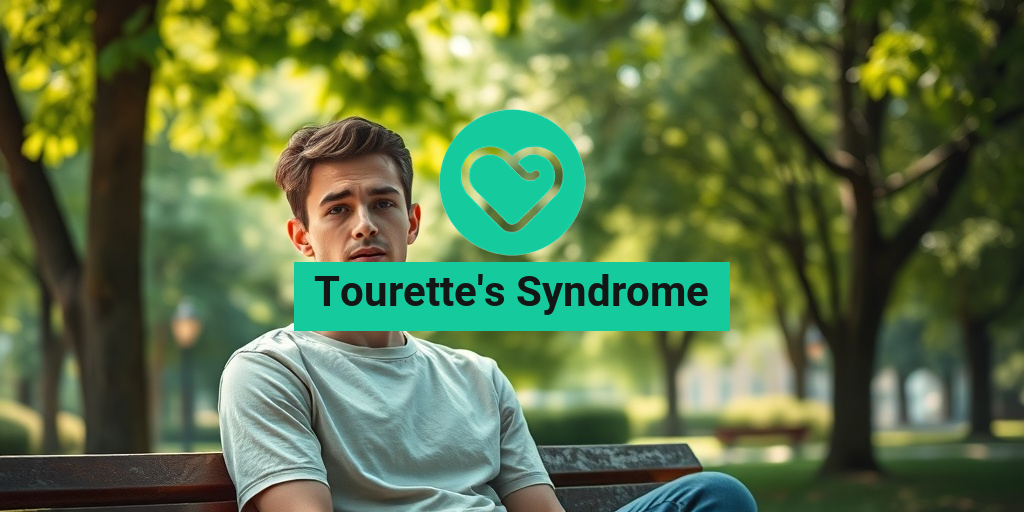What Is Tourette’s Syndrome?
Tourette’s Syndrome is a neurological disorder characterized by repetitive, involuntary movements and vocalizations known as tics. These tics can manifest in various forms, including motor tics (such as blinking or head jerking) and vocal tics (like throat clearing or uttering sounds). The condition is named after the French neurologist Georges Gilles de la Tourette, who first described it in the late 19th century.
While the exact cause of Tourette’s Syndrome remains unclear, it is believed to involve a combination of genetic and environmental factors. Research indicates that the disorder often runs in families, suggesting a hereditary component. Additionally, certain environmental factors, such as infections or stress, may exacerbate symptoms.
It’s important to note that Tourette’s Syndrome is not just about the tics. Many individuals with the condition also experience comorbid disorders, such as attention deficit hyperactivity disorder (ADHD) or obsessive-compulsive disorder (OCD). This complexity can make diagnosis and treatment challenging.
The Meaning of Tourette’s Syndrome
The term “Tourette’s Syndrome” refers to the combination of motor and vocal tics that define the disorder. It is often misunderstood, with many people associating it primarily with involuntary swearing, known as coprolalia. However, only a minority of individuals with Tourette’s experience this symptom. Understanding the broader spectrum of tics is crucial for fostering empathy and awareness.
Tourette’s Syndrome in Females
Interestingly, Tourette’s Syndrome is often perceived as a male-dominated disorder, as it is diagnosed more frequently in boys than girls. However, research shows that females can also be affected, often presenting with different symptoms. Girls may exhibit more subtle tics and are less likely to have coprolalia. This difference in presentation can lead to underdiagnosis in females, highlighting the need for increased awareness and understanding of the disorder across genders.
Tourette’s Symptoms
The symptoms of Tourette’s Syndrome can vary widely among individuals, both in type and severity. Understanding these symptoms is essential for early diagnosis and effective management.
Motor Tics
Motor tics are involuntary movements that can affect various parts of the body. Common motor tics include:
- Blinking: Rapidly closing and opening the eyes.
- Head jerking: Quick movements of the head in various directions.
- Facial grimacing: Making unusual facial expressions.
- Shoulder shrugging: Involuntary lifting of the shoulders.
Vocal Tics
Vocal tics involve involuntary sounds produced by the voice. These can range from simple sounds to complex phrases. Common vocal tics include:
- Throat clearing: Repeatedly clearing the throat.
- Grunting: Making low, guttural sounds.
- Coprolalia: Involuntary swearing or inappropriate remarks (not common in all individuals with Tourette’s).
- Repeating words or phrases: Echoing what others say (echolalia).
Severity and Fluctuation of Symptoms
One of the unique aspects of Tourette’s Syndrome is that symptoms can fluctuate over time. Many individuals experience periods of increased tics, known as “tic attacks,” followed by periods of relative calm. Stress, excitement, or fatigue can exacerbate symptoms, while relaxation and focus may reduce them. This variability can make it challenging for individuals to manage their condition in different environments, such as school or work.
Seeking Help and Treatment
If you or someone you know is experiencing symptoms of Tourette’s Syndrome, it is essential to seek professional help. A healthcare provider can offer a comprehensive evaluation and discuss potential treatment options. Treatments may include behavioral therapies, medications, or a combination of both, tailored to the individual’s needs.
For more information and resources on Tourette’s Syndrome, consider visiting Yesil Health AI, where you can find evidence-based answers to your health questions.
Understanding Tourette’s Syndrome is crucial for fostering a supportive environment for those affected. By raising awareness and promoting empathy, we can help individuals with Tourette’s lead fulfilling lives. 🌟

Tourette’s Causes
Tourette’s Syndrome is a complex neurological disorder characterized by repetitive, involuntary movements and vocalizations known as tics. Understanding the causes of Tourette’s Syndrome is crucial for both those affected and their families. While the exact cause remains unclear, several factors are believed to contribute to the development of this condition.
Genetic Factors
Research indicates that genetics play a significant role in Tourette’s Syndrome. Individuals with a family history of the disorder are more likely to develop it themselves. Studies suggest that multiple genes may be involved, influencing the likelihood of developing tics. If you have a relative with Tourette’s, your risk of having the syndrome increases, highlighting the importance of genetic predisposition.
Neurobiological Factors
Neurobiological factors also contribute to Tourette’s Syndrome. Abnormalities in certain brain regions, particularly those involved in movement control and impulse regulation, have been observed in individuals with the disorder. Neurotransmitters, such as dopamine and serotonin, are believed to play a role in the manifestation of tics. An imbalance in these chemicals can lead to the development of Tourette’s symptoms.
Environmental Influences
While genetics and neurobiology are significant, environmental factors may also trigger or exacerbate Tourette’s symptoms. Stress, infections, and exposure to certain toxins have been linked to the onset or worsening of tics. For instance, some children may experience an increase in tics following a streptococcal infection, a phenomenon known as Pediatric Autoimmune Neuropsychiatric Disorders Associated with Streptococcal Infections (PANDAS).
Comorbid Conditions
Many individuals with Tourette’s Syndrome also experience comorbid conditions, such as Attention Deficit Hyperactivity Disorder (ADHD) and Obsessive-Compulsive Disorder (OCD). These conditions can complicate the diagnosis and management of Tourette’s, as they may share overlapping symptoms. Understanding the interplay between Tourette’s and these comorbidities is essential for effective treatment.
Tourette’s Diagnosis
Diagnosing Tourette’s Syndrome can be challenging due to the variability of symptoms and the overlap with other disorders. A comprehensive evaluation is necessary to ensure an accurate diagnosis and appropriate treatment plan.
Clinical Evaluation
The diagnosis of Tourette’s typically begins with a thorough clinical evaluation by a healthcare professional, often a neurologist or psychiatrist. During this evaluation, the doctor will:
- Take a detailed medical history, including family history of tics or Tourette’s.
- Observe the patient’s tics and other behaviors.
- Assess the frequency, duration, and type of tics present.
It’s important to note that for a diagnosis of Tourette’s Syndrome, the tics must be present for at least one year and must occur before the age of 18.
Diagnostic Criteria
The Diagnostic and Statistical Manual of Mental Disorders (DSM-5) outlines specific criteria for diagnosing Tourette’s Syndrome. According to the DSM-5, the following criteria must be met:
- Multiple motor tics and one or more vocal tics must be present at some time during the illness.
- The tics must occur many times a day, nearly every day, or intermittently over a period of more than a year.
- The onset of tics must occur before the age of 18.
- The tics must not be attributable to another medical condition or substance use.
Additional Assessments
In some cases, additional assessments may be necessary to rule out other conditions or to evaluate the impact of tics on daily functioning. These assessments may include:
- Psychological evaluations to assess for comorbid conditions like ADHD or OCD.
- Neuropsychological testing to evaluate cognitive function.
- Imaging studies, although not routinely used, may be conducted in specific cases to rule out other neurological disorders.
Early diagnosis and intervention are crucial for managing Tourette’s Syndrome effectively. Understanding the causes and the diagnostic process can empower individuals and families to seek the appropriate support and treatment options available. 🌟

Tourette’s Treatment Options
Tourette’s Syndrome is a neurological disorder characterized by repetitive, involuntary movements and vocalizations known as tics. While there is currently no cure for Tourette’s, various treatment options can help manage symptoms effectively. Understanding these options is crucial for individuals living with Tourette’s and their families.
Medications
Medications are often the first line of treatment for Tourette’s Syndrome. They can help reduce the frequency and severity of tics. Some commonly prescribed medications include:
- Antipsychotics: Medications like haloperidol and pimozide are often used to manage tics.
- Alpha-2 adrenergic agonists: Clonidine and guanfacine can help reduce tics and improve attention.
- Botulinum toxin injections: These can be effective for specific muscle groups affected by tics.
It’s essential to work closely with a healthcare provider to find the right medication and dosage, as responses can vary significantly among individuals.
Behavioral Therapies
In addition to medications, behavioral therapies can play a vital role in managing Tourette’s Syndrome. Some effective therapies include:
- Comprehensive Behavioral Intervention for Tics (CBIT): This therapy focuses on awareness and self-control of tics, teaching individuals to recognize the urge to tic and replace it with a competing response.
- Cognitive Behavioral Therapy (CBT): CBT can help address the anxiety and stress that often accompany Tourette’s, providing coping strategies to manage symptoms.
These therapies can be particularly beneficial for children and adolescents, helping them develop skills to cope with their tics in social situations.
Supportive Therapies
Supportive therapies can also enhance the quality of life for individuals with Tourette’s. These may include:
- Occupational Therapy: This can help individuals develop skills for daily living and improve their social interactions.
- Speech Therapy: For those with vocal tics, speech therapy can assist in improving communication skills.
Engaging in supportive therapies can provide individuals with the tools they need to navigate daily challenges associated with Tourette’s Syndrome.
Tourette’s Management Strategies
Managing Tourette’s Syndrome involves a combination of medical treatment and lifestyle adjustments. Here are some effective strategies to help individuals cope with their symptoms:
Education and Awareness
Understanding Tourette’s Syndrome is crucial for both individuals and their families. Educating oneself about the disorder can help reduce stigma and foster a supportive environment. Resources such as books, websites, and support groups can provide valuable information and community support.
Creating a Supportive Environment
A supportive environment can significantly impact the well-being of someone with Tourette’s. Here are some tips for creating such an environment:
- Open Communication: Encourage open discussions about Tourette’s within the family and among friends to foster understanding.
- Reduce Stress: Stress can exacerbate tics, so creating a calm and predictable environment can help.
- Encourage Acceptance: Promote acceptance and understanding among peers, especially in school settings.
Healthy Lifestyle Choices
Adopting a healthy lifestyle can also aid in managing Tourette’s symptoms. Consider the following:
- Regular Exercise: Physical activity can help reduce stress and improve overall well-being.
- Balanced Diet: A nutritious diet can support brain health and overall functioning.
- Sleep Hygiene: Ensuring adequate sleep is crucial, as fatigue can worsen tics.
Incorporating these lifestyle choices can lead to improved management of Tourette’s Syndrome and enhance the quality of life.
Mindfulness and Relaxation Techniques
Practicing mindfulness and relaxation techniques can help individuals with Tourette’s manage their symptoms more effectively. Techniques such as:
- Meditation: Regular meditation can help reduce anxiety and improve focus.
- Deep Breathing Exercises: These can help calm the nervous system and reduce the urge to tic.
Integrating these practices into daily routines can provide a sense of control and peace for those living with Tourette’s Syndrome. 🌟

Tourette’s in Children
Tourette’s Syndrome is a neurological disorder characterized by repetitive, involuntary movements and vocalizations known as tics. While it can affect individuals of all ages, it often manifests in childhood. Understanding how Tourette’s Syndrome presents in children is crucial for parents, educators, and caregivers.
What Are Tics?
Tics are the hallmark of Tourette’s Syndrome and can be classified into two main types:
- Motor Tics: These involve physical movements, such as blinking, head jerking, or shoulder shrugging.
- Vocal Tics: These include sounds made with the voice, such as throat clearing, grunting, or even swearing (known as coprolalia, though it is not present in all cases).
It’s important to note that tics can vary in severity and frequency. Some children may experience mild tics that come and go, while others may have more persistent and disruptive symptoms.
When Does Tourette’s Syndrome Typically Appear?
Tourette’s Syndrome usually becomes noticeable between the ages of 5 and 10. Parents may first observe unusual movements or sounds that their child makes. Early diagnosis and intervention can significantly improve a child’s quality of life.
Causes of Tourette’s Syndrome
The exact cause of Tourette’s Syndrome remains unclear, but research suggests a combination of genetic and environmental factors. Some potential contributors include:
- Genetics: A family history of Tourette’s or other tic disorders may increase the likelihood of a child developing the syndrome.
- Neurobiological Factors: Abnormalities in certain brain regions and neurotransmitters, such as dopamine, may play a role.
- Environmental Triggers: Stress, excitement, or illness can exacerbate tics in some children.
Living with Tourette’s Syndrome
Children with Tourette’s Syndrome may face unique challenges, including social stigma and difficulties in school. It’s essential for parents and educators to foster an understanding environment. Here are some strategies to support children:
- Education: Teach peers about Tourette’s to reduce bullying and promote empathy.
- Open Communication: Encourage children to express their feelings about their tics and any challenges they face.
- Professional Support: Consider therapy or counseling to help children cope with the emotional aspects of the disorder.
Tourette’s Support and Resources
Finding the right support and resources is vital for families dealing with Tourette’s Syndrome. Fortunately, there are numerous organizations and tools available to help navigate this journey.
National and Local Organizations
Several organizations provide valuable resources, support, and advocacy for individuals with Tourette’s Syndrome:
- Tourette Association of America: This organization offers educational materials, support groups, and advocacy efforts to raise awareness about Tourette’s.
- National Institute of Neurological Disorders and Stroke (NINDS): NINDS provides comprehensive information on Tourette’s Syndrome, including research updates and treatment options.
- Local Support Groups: Many communities have local support groups where families can connect with others facing similar challenges.
Online Resources and Communities
The internet is a treasure trove of information and support for families dealing with Tourette’s Syndrome. Here are some online resources to consider:
- Forums and Social Media Groups: Platforms like Reddit and Facebook have communities where individuals share experiences, advice, and support.
- Educational Websites: Websites like Tourette.org offer a wealth of information on symptoms, treatments, and coping strategies.
- Webinars and Online Workshops: Many organizations host online events that provide education and support for families.
Therapeutic Options
While there is no cure for Tourette’s Syndrome, various treatment options can help manage symptoms:
- Behavioral Therapy: Cognitive-behavioral therapy (CBT) and habit reversal training can be effective in reducing tic severity.
- Medications: In some cases, medications may be prescribed to help control tics and associated symptoms.
- Supportive Therapies: Occupational therapy, speech therapy, and social skills training can also benefit children with Tourette’s.
By understanding Tourette’s Syndrome and utilizing available resources, families can create a supportive environment that fosters growth and resilience in children living with this condition. 🌟

Frequently Asked Questions about Tourette’s Syndrome
What is Tourette’s Syndrome?
Tourette’s Syndrome is a neurological disorder characterized by repetitive, involuntary movements and vocalizations known as tics. These tics can be motor (such as blinking or head jerking) or vocal (such as grunting or throat clearing).
What causes Tourette’s Syndrome?
The exact cause of Tourette’s Syndrome is not fully understood, but it is believed to involve a combination of genetic and environmental factors. Research suggests that abnormalities in certain brain areas and neurotransmitters may play a role.
How is Tourette’s Syndrome diagnosed?
Diagnosis typically involves a thorough medical history and a physical examination. A healthcare provider will look for the presence of tics and their duration, as well as any associated conditions.
What are the treatment options for Tourette’s Syndrome?
Treatment for Tourette’s Syndrome may include:
- Behavioral therapy: Techniques such as Comprehensive Behavioral Intervention for Tics (CBIT) can help manage tics.
- Medications: Certain medications can help reduce the severity of tics.
- Supportive therapies: Occupational therapy and counseling can assist with coping strategies.
Can Tourette’s Syndrome affect females differently?
Yes, Tourette’s Syndrome can manifest differently in females compared to males. Females may experience less severe tics and are more likely to have associated conditions such as anxiety or obsessive-compulsive disorder.
Is there a connection between Tourette’s Syndrome and swearing?
Some individuals with Tourette’s Syndrome may exhibit a symptom known as coprolalia, which involves involuntary swearing or inappropriate remarks. However, this symptom is not present in all cases of Tourette’s.
How can I support someone with Tourette’s Syndrome?
Supporting someone with Tourette’s Syndrome involves understanding their condition, being patient, and encouraging open communication. It’s important to create a supportive environment that reduces stress and anxiety.
Where can I find more information about Tourette’s Syndrome?
For more information, consider visiting reputable health websites, joining support groups, or consulting healthcare professionals who specialize in neurological disorders.
Are there any resources for Tourette’s Syndrome in Spanish?
Yes, there are resources available in Spanish that provide information about Tourette’s Syndrome. Many organizations offer bilingual support and educational materials.
Can Tourette’s Syndrome impact sleep?
Yes, individuals with Tourette’s Syndrome may experience sleep disturbances. Tics can interfere with sleep quality, leading to fatigue and other related issues.
What should I do if I suspect I have Tourette’s Syndrome?
If you suspect you have Tourette’s Syndrome, it is important to consult a healthcare professional for an evaluation. Early diagnosis and intervention can help manage symptoms effectively.




